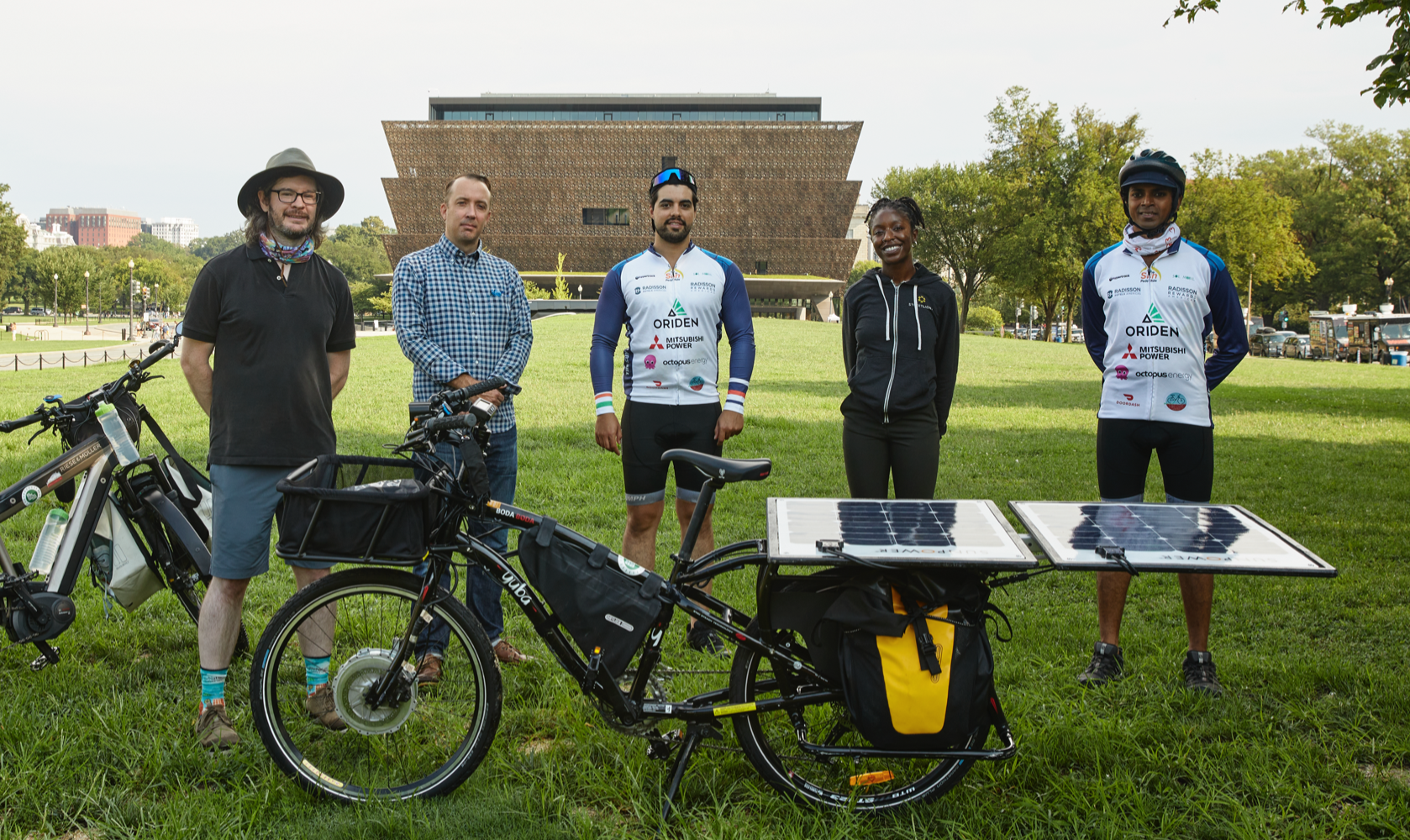
Working On Purpose: Using Big Data to Make Progress on Transportation Equity

Victoria Fanibi joined StreetLight in July 2021, following several years working in community development research at the Urban Land Institute, Catalytic Communities and Smart Growth America.
As a recent StreetLight hire with a background in community development research, equity has been a major focus for me professionally. Joining StreetLight was my formal introduction to the world of Big Data and its applications, and while I was once skeptical about the tech world’s motives and ability to drive positive change, my first few months at StreetLight renew my optimism. It turns out my colleagues here, from StreetLight’s founders to data scientists, had set out to “use data for good” a decade ago and continue to work on purpose to drive positive change.
Despite a shift in my career path from research to software, I am still deeply committed to social equity and sustainable, climate-resilient development. It turns out that StreetLight’s Metrics are invaluable in helping communities address public health concerns, providing necessary insight into the movement of marginalized communities, and promoting progressive mobility solutions.
Equity in transportation is bolstered by a fundamental understanding of how marginalized populations interact with existing infrastructure. In the case of StreetLight’s work with DKS Associates, StreetLight directly influenced equitable outcomes in Lane County, Oregon. Below I share the tenets of this work, followed by two more examples of my employer StreetLight working “on purpose.”
1. Using Big Data to Uncover the Travel Behavior of Title VI Populations
In partnership with DKS Associates, a transportation and planning firm, StreetLight’s Metrics were deployed to conduct equity analyses to support the generation of the Central Lane Regional Transportation Plan in Lane County, Oregon. DKS and StreetLight assessed census tracts with higher-than-average concentrations of Title VI communities of concern to visualize their unique travel patterns.
StreetLight’s main role on this project was to assess the patterns of movement for a sample population in Lane County. Specifically, StreetLight visualized the distances traveled during peak hour trips in the morning and evening between census tracts. The results of this analysis revealed major disparities in travel time and distance: census tracts with higher percentages of communities of concern take longer trips in the morning.
StreetLight’s Metrics provided an invaluable assessment that DKS Associates and Lane County were otherwise incapable of compiling themselves. Had StreetLight Metrics not identified this inequity, Lane County likely would have, unintentionally, exacerbated the existing economic and social disparities of the census tracts. Lane County is now able to move forward in improving connectivity for the whole of the county.
2. Empowering municipalities to address public health issues
The Ohio Department of Transportation relied on StreetLight’s Metrics to study the link between transportation and one of the state’s most pressing public health concerns: infant mortality. With a rate of 7.4 infant deaths per 1,000 live births, compared to the U.S. average of 5.9 deaths, healthcare access is vital for low-income communities in Ohio. The South Linden neighborhood in Columbus is a statistical oddity. South Linden has more single-mother households than 99% of U.S. neighborhoods. Residents of South Linden have a median household income of approximately $21,000 resulting in low rates of car-ownership and dependency on public transit. Despite the remarkable concentration of single mothers in South Linden, there is no neighborhood OBGYN, forcing expecting mothers to travel great distances to receive the necessary prenatal care. The simple act of providing safe, reliable transportation the doctor’s office can drastically increase the health outcomes of low-income pregnancies in Columbus.
Paired with a $50 million federal grant from the Department of Transportation to help create a new transportation system that would specifically address accessibility issues in low-income neighborhoods, Ohio DOT used its Regional Subscription to StreetLight Insight® create actionable transportation analytics from archival location data.
StreetLight Insight® is a cloud-based tool that provides decision-makers, such as transportation planners, the data necessary to advocate on behalf of marginalized communities. In the specific instance of South Linden in Columbus, StreetLight was used to analyze origin-destination metrics to and from clinics, hospitals, and other health offices to tailor transportation investments in low-income communities. StreetLight makes data-informed story telling possible.
3. Supporting the future of mobility
I conclude with the SunPedal Ride as this was my first true encounter with StreetLight’s core values. Within the first month of joining StreetLight, I was invited to meet Sushil Reddy, the founder of the SunPedal Ride and a Guinness World Record holder for solar biking across India, whose ride was co-sponsored by StreetLight. Sushil made his way across the United States on a (mostly) solar-powered electric bike called The SunPedal. The SunPedal Ride, founded in 2016 by Sushil, is an outreach project to ignite conversations about clean, sustainable mobility through a series of endurance journeys on zero tail-pipe emission vehicles.
On August 22, 2021 StreetLight’s Victoria Fanibi, Thomas Grogan and Jeff Peel met Sushil Reddy and Luis Fourzan of the SunPedal Ride team in Washington D.C.
When I met Sushil, we discussed his long-term goals, the mechanics of the SunPedal bike, and the potential social impact of his cross-country bike rides. Through this conversation it became evident that while data companies can default to a mindset where the applications of their data are severed from the values of the company, StreetLight has opted to do the opposite.
Sushil feels an urgency to combat climate change by adopting more sustainable means of living and moving. StreetLight’s sponsorship of SunPedal ride is at once an endorsement of Sushil’s journey across the United States as well as a pledge to continue its support of initiatives that seek to offer real solutions to pressing sustainability and mobility needs.
“I believe that the impact StreetLight has made since 2011 is just a sampling of what is possible. At more than 10,000 smart projects every month, StreetLight’s real-world opportunities seem endless. Perhaps a bold claim, but StreetLight’s Metrics are a lifeline to changing the future of mobility and improving the lives of thousands along the way.”
